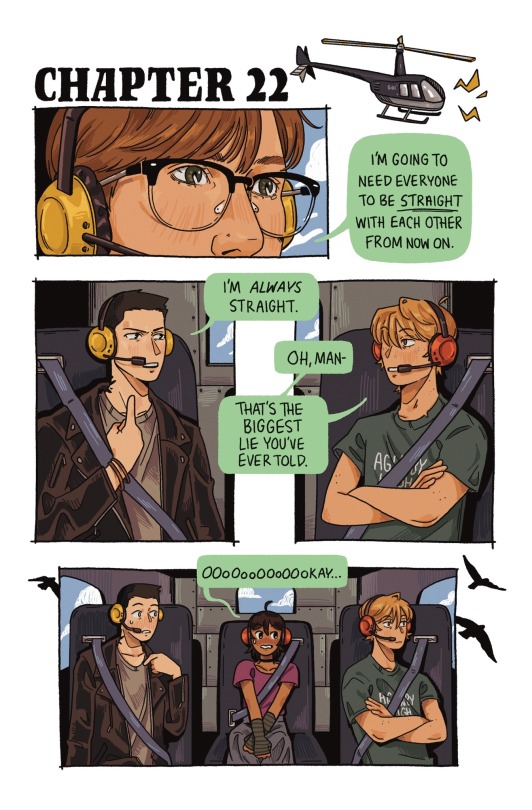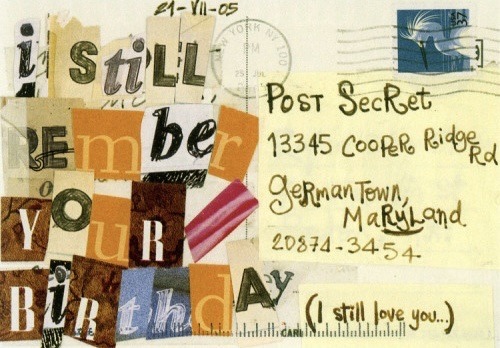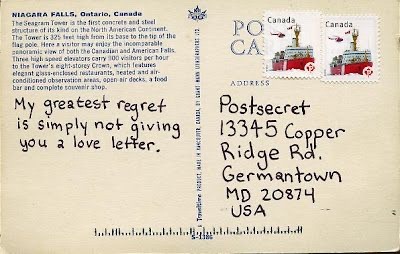One Of My Fav Bits Of Canon Dialogue From Book 1

one of my fav bits of canon dialogue from book 1
More Posts from Lrs35 and Others
“You don’t meet the people you love, you recognize them.”
― Anna Gavalda, “Life, Only Better” , trans. Tina Kover
“You and I know each other in our bones”
― Kurt Vonnegut, from a letter to Nanny Vonnegut
“but everyone had this patina
of slightly bruised longing, this shimmer of
I think I knew you when we were children,
this look of I’ve loved you ever since you
were born
and probably longer than that”
― Paul Hostovsky, from “Everyone was Beautiful,” Dear Truth (Main Street Rag, 2009)
“He’s been here in my heart before I even knew him. Understand? He’s always been here. Always.”
― Sandra Cisneros , from Woman at Hollering Creek: Stories; “Never Marry a Mexican,”
“You came into my life–not as one comes to visit…but as one comes to a kingdom where all the rivers have been waiting for your reflection, all the roads, for your steps…”
— Vladimir Nabokov, in a letter to Véra Slonim (1923), Letters to Véra
“I love you. I feel as though we were never strangers, you and I, not even for a moment.”
— Friedrich Nietzsche, from a letter to Mathilde Trampedach
“Eventually soulmates meet, for they have the same hiding place.”
— Robert Brault
“Here when I say “I never want to be without you,”
somewhere else I am saying
“I never want to be without you again.” And when I touch you
in each of the places we meet in all of the lives we are,
it’s with hands that are dying and resurrected.
When I don’t touch you it’s a mistake in any life,
in each place and forever.
— Bob Hicok, Other Lives and Dimensions and Finally a Love Poem
“She said that she had been searching for my eyes in the crowd because she felt as if she were talking to my heart.”
— Audre Lorde, from “Zami: A New Spelling of my Name,” published c. 1982
“Who knows? perhaps the same bird echoed through both of us yesterday, separate, in the evening…”
— Rainer Maria Rilke, from You who never arrived (tr. by Stephen Mitchell); Uncollected Poems: 1913–1918
(endgame spoilers please do not read further if you don’t want to get spoiled)
when you are a visual learner sometimes and are trying to understand the quantum time travel:

i have never successfully articulated anything ever but i got very close, once
we all talk about doing it scared doing it alone doing it weird etc. but the the hideously awful truth is that you also often have to do it stupid
hey rae! what piece of medias would you recommend to someone who is interested in gender studies and have done some readings (woolf, davis, a bit of de beauvoir) but overall don't know how to start? have a lovely day!
i've answered a few similar questions, so i'll include links to those answers here: [link 1] [link 2] [link 3] [link 4] [link 5] [link 6]
will likely be repeating myself a bit here re: those other answers bc i tend to recommend the same texts repeatedly to people asking about where to start with gender studies lol but! i think leslie feinberg's writing is a really great place to start--it tends to be very easy to read and honestly i think trans perspectives are a crucial foundation for gender studies (i really enjoyed 'trans liberation: beyond pink and blue'). bell hooks is also a good starting point if you're looking for a sort of feminism 101 jumping-off point, because she specifically wrote to be accessible + easy to understand ('feminism is for everybody' might be a good starting point). audre lorde's essays are also a good starting point ('sister outsider,' 'the master's tools will never dismantle the master's house,' etc). i know u said you've already read some davis, but 'women, race & class' is another good intro text.
i also usually encourage people to check out judith butler's 'performative acts and gender constitution,' but that one is a bit tougher to tackle if gender studies is still a new/unfamiliar field to you (still worth reading, imo, but just keep in mind it might feel frustrating at first + require some re-reading or slower reading to absorb what butler's saying!).
+ there are of course the various other texts recommended in those linked posts above! hope this is helpful ik it can be intimidating to figure out where to start but honestly there's no correct order or progression for learning about this stuff; just read what catches your eye and sparks ur interest!










love was just another secret i was keeping | postsecret

Aging Gracefully
STOP saying the marauders are like the raven boys. you are WRONG. ronan lynch is an eldritch horror and sirius black is what? a twink?
In the same way that we've moved from "everyone is beautiful" to "being beautiful should not factor into your self respect and exterior treatment" -- I hope we can soon move from "X years old is young!! It's still young!!" To "it's okay not to be young or youthful. It doesn't mean your life is over but it doesn't mean it's just started. You can still enjoy living and being yourself at any age even if you're not young." Like the sentiment is there but the execution is following the diversionary reassurance we always tend to go for first. Pls. Pls it's okay to be old. It's okay to be middle aged. It's okay to look old or middle aged or or or. It's okay. You don't have to be young to love yourself
What's your opinion on writing from multiple perspectives? Like, one chapter would be from Bob's POV, and then the next from Shirley's, ect. Do you have any tips for this?
I love multiple POV stories! I really like when authors explore multiple characters and really give the readers a chance to take in the story from many perspectives.
Multiple POV stories work best when:
You have many plots. The more complex the story, the more information you need to feed the reader for the story to work. Sometimes it’s just not possible to get all that information through a single protagonist. Many protagonists, however, are better suited to learning all that information. Many protagonists - especially if they aren’t working together - are also better at screwing up plans and creating chaos.
The plot is character-based. A character-based plot means the story deals more with internal struggles than external struggles. If your plot is character based, you really want to show the reader what all the major characters are feeling. Again, a single protagonist probably isn’t privy to everyone’s emotions.
Tips:
Your POV characters don’t need equal time. And when I say equal time, I mean in chapter time or wordcount time. Devote time to the most important characters and most important situations. Do as the plot demands, not as the character demands.
Don’t double up scenes. One of my least favorite moments in multiple POV stories is when the author covers an event with one POV character, then goes back to the beginning of the event to cover it again with another character. If you want another character’s perspective, let them remember parts of the event or revisit as little of the even as you possibly can.
Work on voice. You want to keep those characters as distinct as possible. They are different people, after all. I have a voice tag here to get you started.
Divide the POVs. Not with that awful fanfiction.net **KATNISS’ POV** paragraph starter. Divide POVs by chapter or put a little divider thingy in between POVs if you’re switching in the middle of a chapter.
Keep track of information. Your POV characters will not know the same things because they live different lives and will be exposed to different situations. If your POV character suddenly knows something they shouldn’t, you’ll have a plot hole.
Try to avoid one-shot POVs. One-shot POVs are when a character gets one POV chapter, then no others. There’s nothing wrong with it, but it feels strange to hear from a character once and then no other times.
The plots should interact. Even if the POV characters never meet, their plots should have a common element: for example, a common struggle, a common character, or a common theme. This prevents the story from becoming a collection of badly patched short stories.
-
 achilleancryptid1 reblogged this · 3 weeks ago
achilleancryptid1 reblogged this · 3 weeks ago -
 achilleancryptid1 liked this · 3 weeks ago
achilleancryptid1 liked this · 3 weeks ago -
 olivetreeee liked this · 3 weeks ago
olivetreeee liked this · 3 weeks ago -
 yurireader liked this · 3 weeks ago
yurireader liked this · 3 weeks ago -
 junemary reblogged this · 3 weeks ago
junemary reblogged this · 3 weeks ago -
 orpheusmontgomery liked this · 3 weeks ago
orpheusmontgomery liked this · 3 weeks ago -
 pelicanpulp liked this · 3 weeks ago
pelicanpulp liked this · 3 weeks ago -
 mutant-speedster liked this · 3 weeks ago
mutant-speedster liked this · 3 weeks ago -
 interestinggin liked this · 3 weeks ago
interestinggin liked this · 3 weeks ago -
 mufflon-rants liked this · 3 weeks ago
mufflon-rants liked this · 3 weeks ago -
 random-meme-bot liked this · 3 weeks ago
random-meme-bot liked this · 3 weeks ago -
 transmeowsculine liked this · 3 weeks ago
transmeowsculine liked this · 3 weeks ago -
 wichitalk reblogged this · 3 weeks ago
wichitalk reblogged this · 3 weeks ago -
 dumpsterfire476 liked this · 3 weeks ago
dumpsterfire476 liked this · 3 weeks ago -
 moth-moon7 reblogged this · 3 weeks ago
moth-moon7 reblogged this · 3 weeks ago -
 moth-moon7 liked this · 3 weeks ago
moth-moon7 liked this · 3 weeks ago -
 daiisyqueen-blog liked this · 3 weeks ago
daiisyqueen-blog liked this · 3 weeks ago -
 junemary liked this · 3 weeks ago
junemary liked this · 3 weeks ago -
 trashbagbara liked this · 3 weeks ago
trashbagbara liked this · 3 weeks ago -
 the-greywarren liked this · 3 weeks ago
the-greywarren liked this · 3 weeks ago -
 teacomets liked this · 3 weeks ago
teacomets liked this · 3 weeks ago -
 dannyboyandphillip reblogged this · 3 weeks ago
dannyboyandphillip reblogged this · 3 weeks ago -
 catchronicles87 liked this · 3 weeks ago
catchronicles87 liked this · 3 weeks ago -
 saraewww liked this · 3 weeks ago
saraewww liked this · 3 weeks ago -
 atinyeolz liked this · 3 weeks ago
atinyeolz liked this · 3 weeks ago -
 melinoetheghostqueen liked this · 3 weeks ago
melinoetheghostqueen liked this · 3 weeks ago -
 guineapigfluff reblogged this · 3 weeks ago
guineapigfluff reblogged this · 3 weeks ago -
 guineapigfluff liked this · 3 weeks ago
guineapigfluff liked this · 3 weeks ago -
 thepersephonecabin reblogged this · 3 weeks ago
thepersephonecabin reblogged this · 3 weeks ago -
 andsilvered reblogged this · 3 weeks ago
andsilvered reblogged this · 3 weeks ago -
 27thbam reblogged this · 3 weeks ago
27thbam reblogged this · 3 weeks ago -
 27thbam liked this · 3 weeks ago
27thbam liked this · 3 weeks ago -
 what-is-a-johngreen reblogged this · 3 weeks ago
what-is-a-johngreen reblogged this · 3 weeks ago -
 what-is-a-johngreen liked this · 3 weeks ago
what-is-a-johngreen liked this · 3 weeks ago -
 grace13star reblogged this · 3 weeks ago
grace13star reblogged this · 3 weeks ago -
 grace13star liked this · 3 weeks ago
grace13star liked this · 3 weeks ago -
 aadd1116 liked this · 4 weeks ago
aadd1116 liked this · 4 weeks ago -
 sunnyisred liked this · 4 weeks ago
sunnyisred liked this · 4 weeks ago -
 verbum-comedentis liked this · 4 weeks ago
verbum-comedentis liked this · 4 weeks ago -
 collem-west liked this · 1 month ago
collem-west liked this · 1 month ago -
 adamwolfparrish reblogged this · 1 month ago
adamwolfparrish reblogged this · 1 month ago -
 m3wzy liked this · 1 month ago
m3wzy liked this · 1 month ago -
 randomrhea liked this · 1 month ago
randomrhea liked this · 1 month ago -
 pins-and-flowers reblogged this · 1 month ago
pins-and-flowers reblogged this · 1 month ago -
 pins-and-flowers liked this · 1 month ago
pins-and-flowers liked this · 1 month ago -
 sakurapetaldragonscales liked this · 1 month ago
sakurapetaldragonscales liked this · 1 month ago -
 sztefa001 reblogged this · 1 month ago
sztefa001 reblogged this · 1 month ago -
 pitylaughterforme liked this · 1 month ago
pitylaughterforme liked this · 1 month ago -
 deaththeyamikid liked this · 1 month ago
deaththeyamikid liked this · 1 month ago
